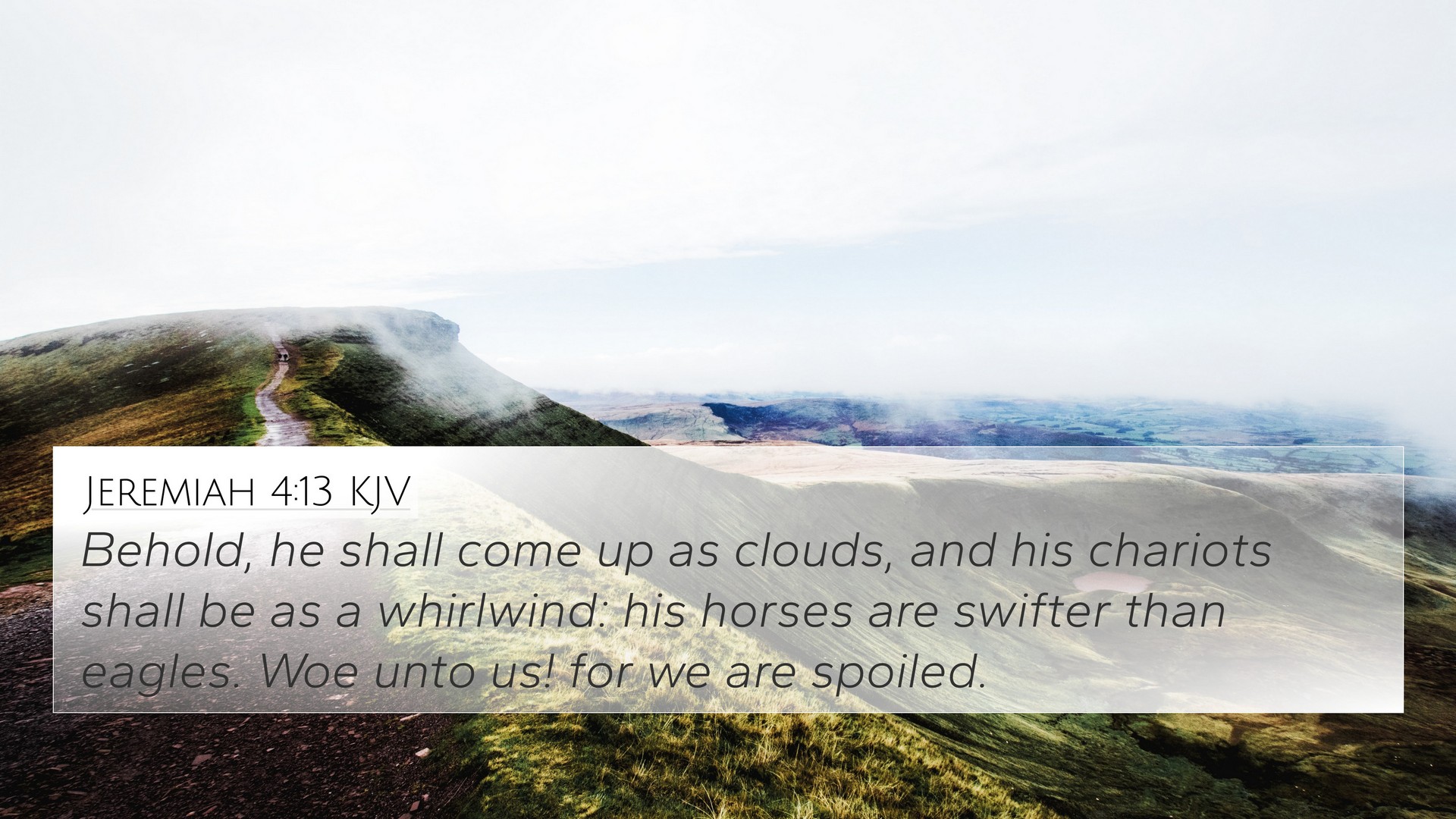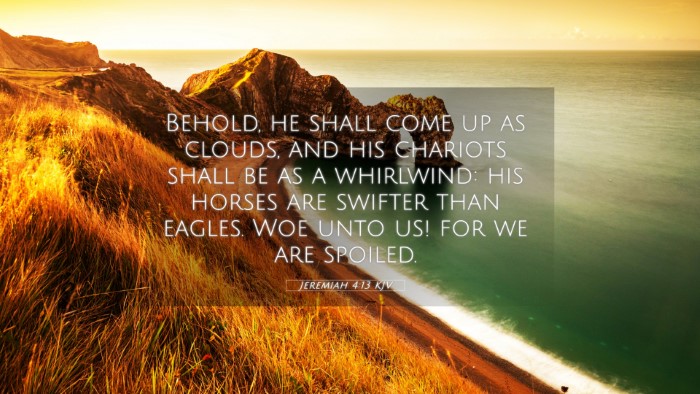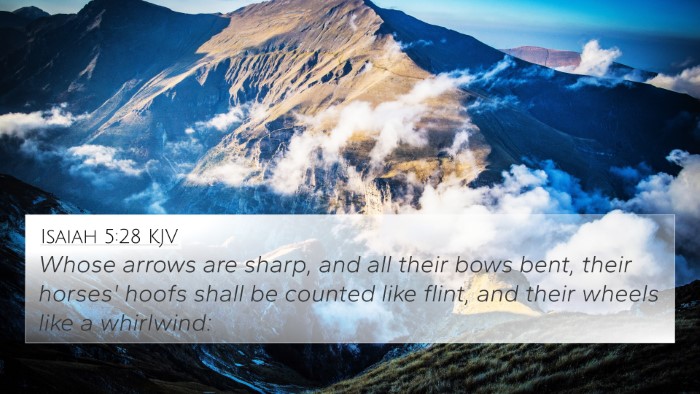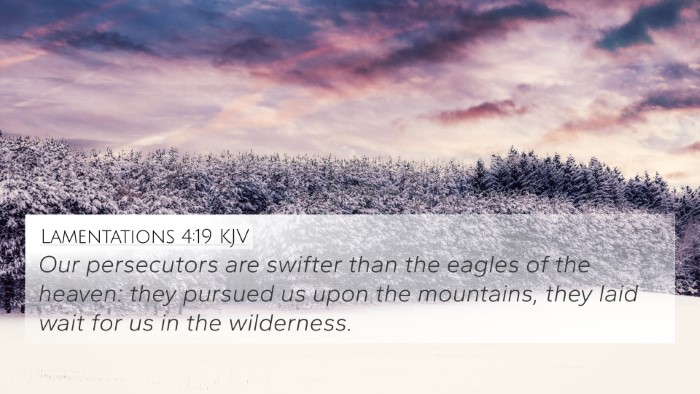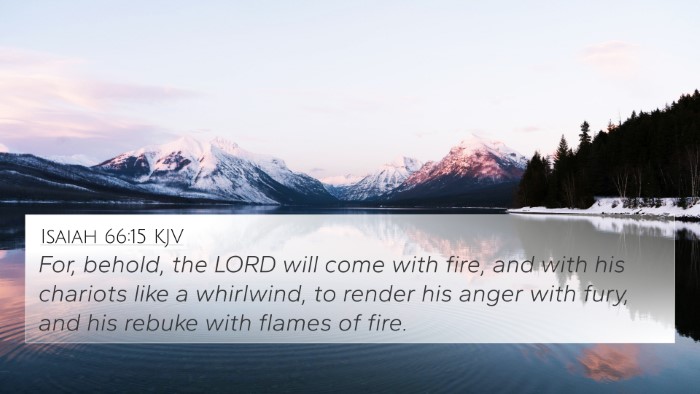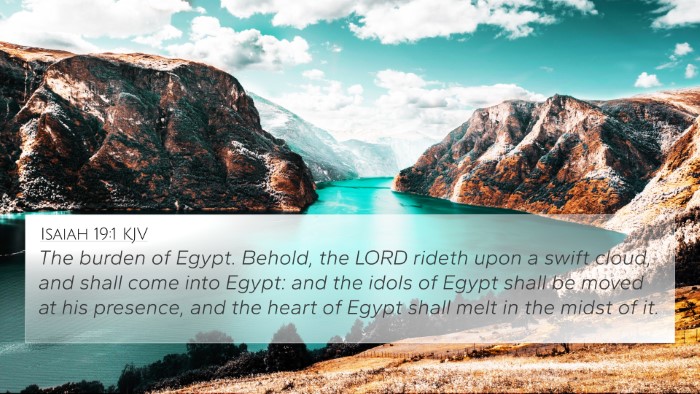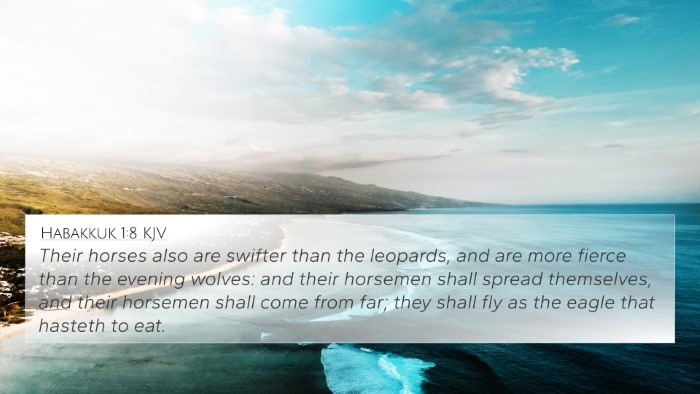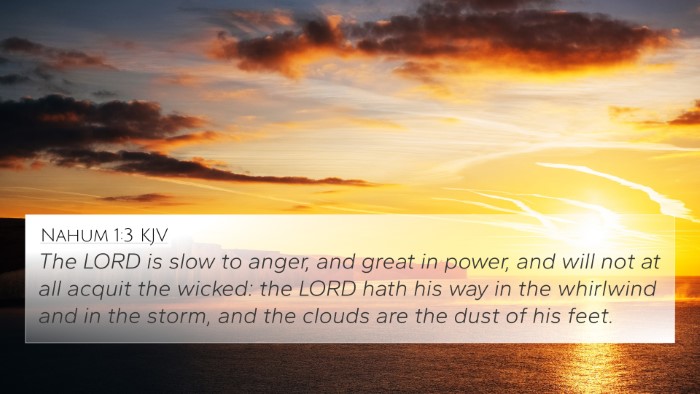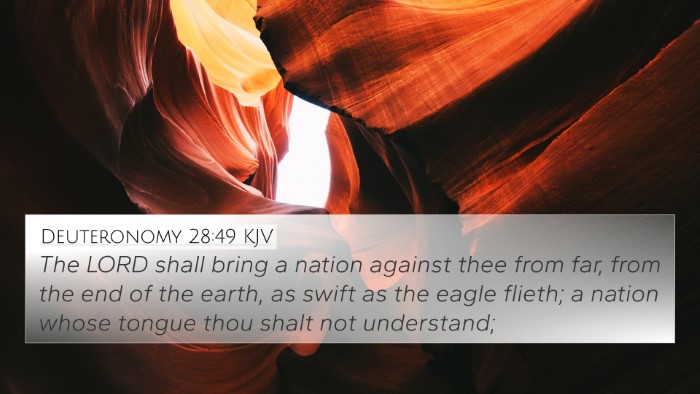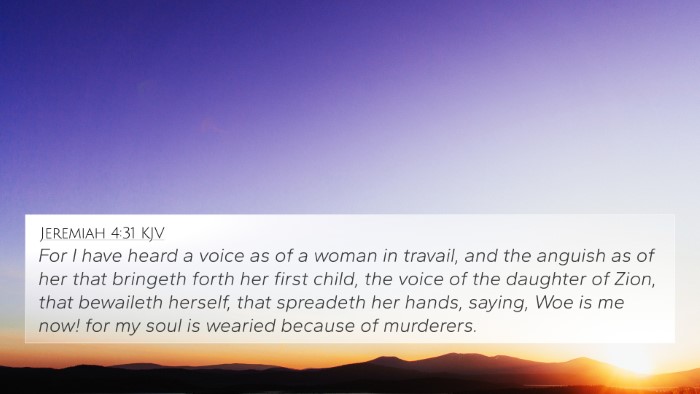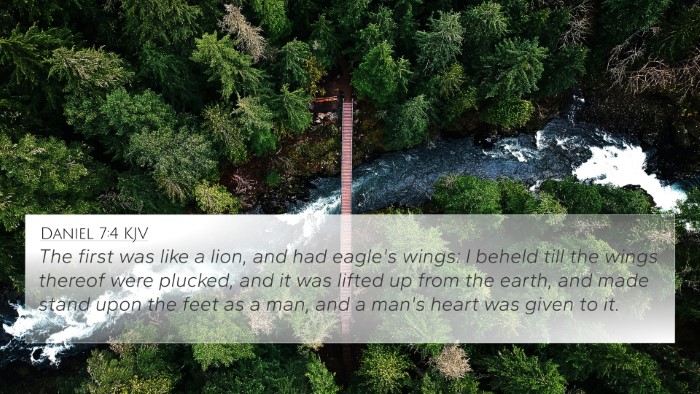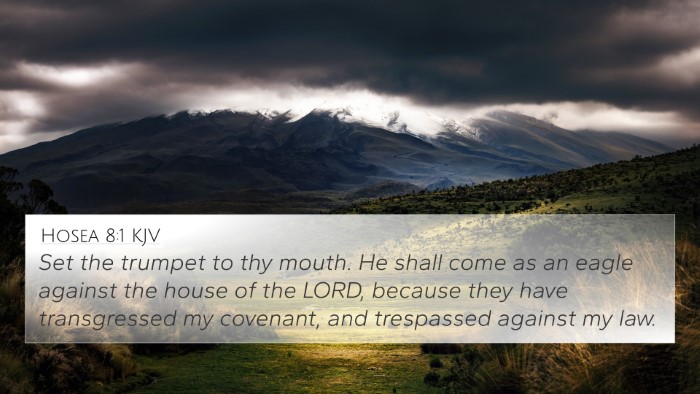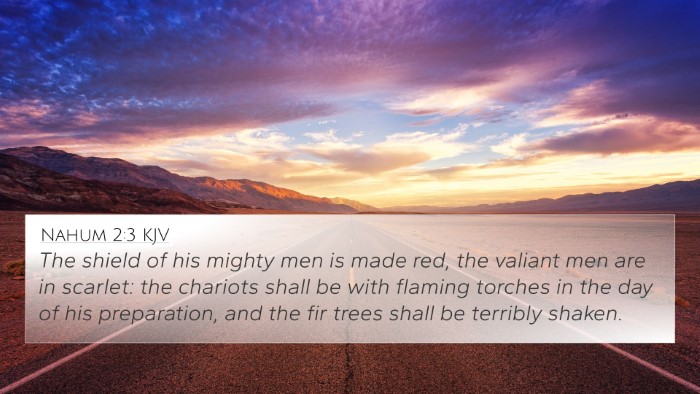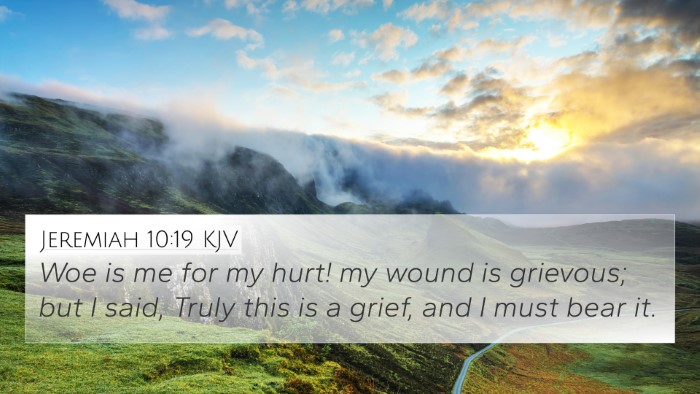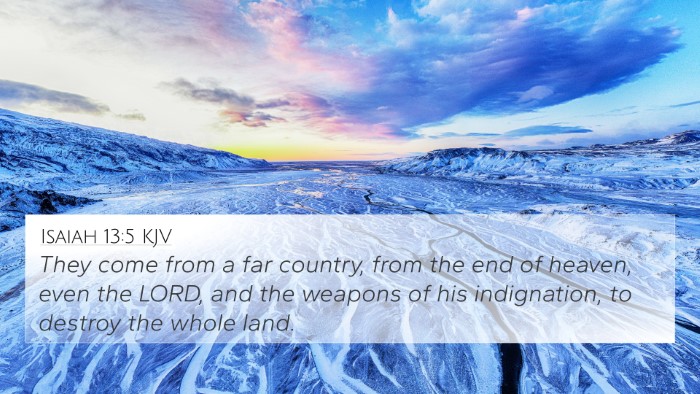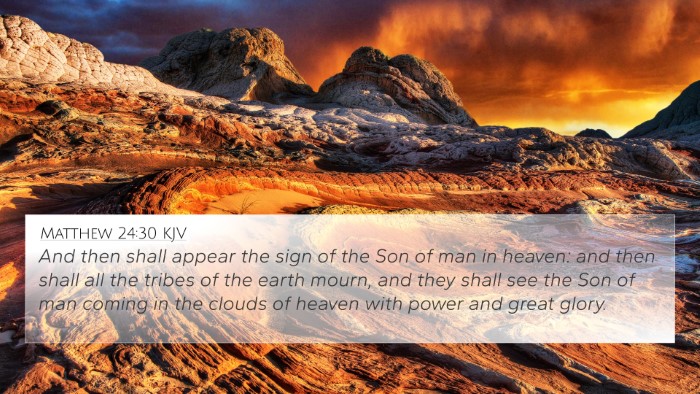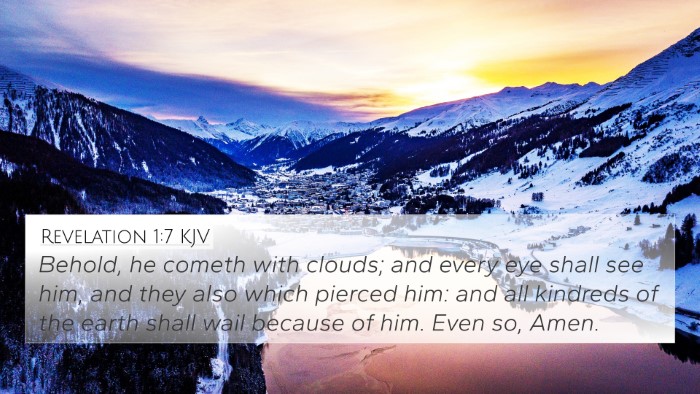Understanding Jeremiah 4:13
The verse Jeremiah 4:13 states: "Behold, he shall come up as clouds, and his chariots shall be as a whirlwind: his horses are swifter than eagles. Woe unto us! for we are spoiled."
This verse presents a vivid imagery of impending destruction and serves as a warning from the prophet Jeremiah to the people of Judah about the approaching calamity.
Summary of the Verse Meaning
Jeremiah uses the imagery of clouds, whirlwinds, and swift horses to depict the speed and overwhelming nature of the approaching enemy (often understood to be the Babylonians). The phrase “Woe unto us!” reflects a deep sense of despair and acknowledgment of their fate due to the consequences of their actions, particularly their disobedience to God.
Commentary Insights
Matthew Henry's Commentary
Matthew Henry emphasizes the swiftness and power of the enemies coming against Judah. He notes that the metaphor of clouds suggests both the suddenness and the heaviness of the judgment that is to come. Henry points out that this description serves as a foreshadowing of the devastation that will befall the nation due to their unfaithfulness, urging readers to recognize God’s holiness and the necessity of repentance.
Albert Barnes' Notes
Albert Barnes discusses the prophetic significance of the metaphorical language used in this verse. He states, “clouds” and “whirlwinds” symbolize not just a natural storm, but the divine judgment that will manifest through the formidable power of Babylon. Barnes delves into the relational aspect of sin and consequences in biblical theology, positing that such calamities serve as both punishment and a call to repentance.
Adam Clarke's Commentary
Adam Clarke expounds on the emotional response embedded in the text with “Woe unto us!” He interprets this cry as a lamentation of the people realizing too late the repercussions of their iniquities. Clarke emphasizes that this verse encapsulates the wider narrative of the book of Jeremiah, which continually calls the nation to return to God lest they face dire consequences. The lament reflects a heart of despair amidst impending judgment.
Bible Cross References
- Isaiah 5:27: "None shall be weary nor stumble among them; none shall slumber nor sleep; neither shall the girdle of their loins be loosed, nor the latchet of their shoes be broken." - Reflecting the swiftness of the impending threat.
- Jeremiah 47:2: "Thus saith the LORD; Behold, waters rise up out of the north, and shall be an overflowing flood, and shall overflow the land, and all that is therein, the city, and them that dwell therein: and the men shall cry, and all the inhabitants of the land shall howl." - The flood metaphor aligns with the imagery of overwhelming destruction.
- Ezekiel 26:7: "For thus saith the Lord GOD; Behold, I will bring upon Tyrus Nebuchadnezzar king of Babylon, a king of kings, from the north, with horses, and with chariots, and with horsemen, and companies, and much people." - Links the destruction to the Babylonian forces.
- Habakkuk 1:8: "Their horses also are swifter than the leopards, and more fierce than the evening wolves: and their horsemen shall spread themselves, and their horsemen shall come from far; they shall fly as the eagle that hasteth to eat." - Another portrayal of rapid destruction akin to “swifter than eagles.”
- Psalm 102:16: "When the LORD shall build up Zion, he shall appear in his glory." - A contrasting anticipation of God’s glory versus the consequences of human unfaithfulness.
- Jeremiah 5:6: "Wherefore a lion out of the forest shall slay them, and a wolf of the evenings shall spoil them, a leopard shall watch over their cities: every one that goeth out thence shall be torn in pieces: because their transgressions are many, and their backslidings are increased." - Comparison of animals as a metaphor for judgment similar to clouds and whirlwind.
- Revelation 6:15-17: "And the kings of the earth, and the great men, and the rich men, and the chief captains, and the mighty men, and every bondman, and every free man, hid themselves in the dens and in the rocks of the mountains..." - Reflects on the themes of fear during divine judgment.
Thematic Connections
Thematically, Jeremiah 4:13 resonates within the broader narrative of judgment and mercy. Its use of powerful prophetic imagery intricately connects to various aspects of biblical literature, highlighting the significance of divine retribution in response to human rebellion. This invokes an inter-textual dialogue with multiple biblical themes, such as divine sovereignty, human accountability, and the call to repentance.
Tools for Bible Cross-Referencing
To deepen understanding and exploration of the Bible, several tools and resources facilitate effective cross-referencing:
- Bible concordance: A biblical tool that lists words found in the Bible in alphabetical order, with cross-references to the verses in which they appear.
- Bible cross-reference guide: Provides systematic connections between verses and themes across the scripture.
- Cross-reference Bible study: A method of studying the Bible by comparing verses to illuminate themes and messages.
- How to use Bible cross-references: Guides on effectively leveraging the interconnections within scriptural texts.
Conclusion
In conclusion, Jeremiah 4:13 serves as a poignant reminder of the serious implications of turning away from God. The symbolic use of chaos and swiftness in this verse is a powerful call for reflection on one’s path and the necessity of returning to God. By understanding this verse through commentary and cross-references, believers can find deeper meaning and connections that transcend the singular text, fostering a more comprehensive biblical understanding.
